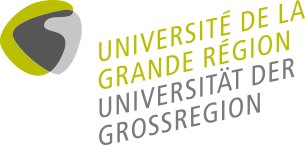Doctoral training opportunities in Belgium (French Community)
In the French Community of Belgium, the doctorate is the only third university cycle.
This comprises doctoral training and the work relating to the preparation of a doctoral thesis. The academic degree of Doctor is awarded after the defence of a thesis which demonstrates the capacities of creativity and carrying out scientific research, and the dissemination of the results by the recipient. The examination consists of
1° writing an original dissertation in either the form of a thesis of a personal nature, or an essay by the candidate, which demonstrates the relevance of a coherent set of publications and achievements of which the candidate is the author or co-author
2° the public presentation of this work, highlighting its qualities, originality and the candidate’s ability to popularise science.
Thus the doctoral degree recognises not only academic training, but also the experience of research and the acquisition of transferable skills. A detailed certificate of doctoral training is included in the degree. A doctorate takes at least 3 years.
Doctoral Schools
The doctoral student is placed at the centre of the process. In order to acquire the highest scientific qualification in a specific field and optimize future employability, the doctoral student contributes to drawing up a training plan, free to organize time flexibly around three major fields: thematic training within his discipline, disciplinary training and scientific production.
The doctoral training offered is organised throughout several universities across the French Community via the FRS-FNRS (cf. above). Participation in international schools or any relevant initiative is obviously encouraged. The young researcher has the opportunity of specialising, and of meeting fellow doctoral students, researchers and professors from other universities.
As to research work, the doctoral student will be supervised in the best scientific teams, made up of professors or confirmed researchers for academic guidance and advice. The university encourages on an international level open-mindedness, by providing activities and specific budgets for attending conferences, scientific projects and stays abroad.
Enroling for a doctorate
The minimum conditions for admission are the following:
- You should hold a Master's II degree (120 credits)
- You should have distinguished yourself at least once during your academic study path leading to your Master’s degree
The procedure is described here.
Financing your doctorate
For several decades, Belgium has made doctoral grants subject to social security contributions. The universities of the French Community have signed the European Charter for Researchers and apply their principles, in particular where doctoral students are concerned.
There are several options for applying for a doctoral grant:
- a grant as a professorial assistant usually gives you the opportunity of combining the pedagogical supervision of students with research activities
- a doctoral studies grant awarded either by the University or the FNRS or FRIA, which enables you to prepare your doctorate
- a researcher’s grant, at the start of your career or after you have gained some experience, for a research contract run by a research team at the University of Liège.


